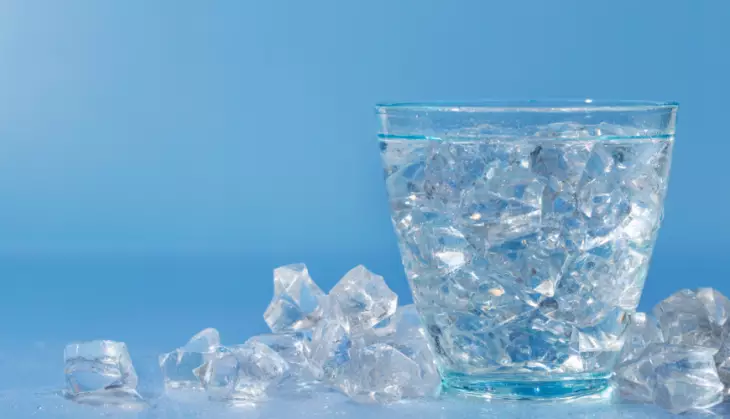The digital realm, while great for staying connected and informed, can sometimes become a breeding ground for unverified claims and products. One such claim making waves recently is the "ice hack" weight loss approach. Many influencers are promoting a certain supplement linked with this diet, claiming impressive weight loss without lifestyle changes. However, health professionals are raising eyebrows.
Is the 'ice hack' diet scientifically founded?
This trending diet hinges on the belief that individuals with a cooler internal body temperature can burn fat more effectively. Adherents consume an icy glass of water before sleeping to reduce their internal temperature, and then consume a weight loss pill named Alpilean. Out of the six ingredients in this supplement, only two have recognized health advantages, albeit not tied to weight loss. The effects and safety of the other four ingredients remain largely in the shadows.
A month's worth of this supplement will set you back $59, excluding the additional shipping charge of $9.95. However, purchasing multiple bottles might net you a discount.
Unpacking the 'ice hack' diet mechanism
Zeratsky, a respected dietitian at the Mayo Clinic, clarifies that the diet is premised on our body's energy use for maintaining core temperature - a key element of our basal metabolic rate. This diet argues that the act of consuming ice or frigid water, coupled with the supplement, can manipulate this mechanism. According to Alpilean, the components—golden algae, dika nut, drumstick tree leaf, bigarade orange, ginger, and turmeric—each play a role in this.
However, many of these claims aren't substantiated by extensive research. For instance, Zeratsky reveals that solid information on golden algae and drumstick tree leaf is hard to come by. Dika nut has limited studies, with some suggesting it might lower blood sugar, posing risks to diabetics and post-surgical patients. The term 'bigarade orange' seems to be synonymous with bitter orange, which came into the spotlight as a substitute for the prohibited ephedra. Only ginger and turmeric have a track record of safety, but their roles in weight loss or body temperature management lack solid evidence.
Can this diet actually induce weight loss?
Despite the raving endorsements from social media icons, health experts remain unconvinced. Zeratsky highlights concerns about product quality, correct dosage, and potential contamination, given its unregulated status.
Jen Messer, a dietitian and nutrition consultant, acknowledges the logic behind consuming cold water or ice to spur metabolism but dismisses it due to a lack of supporting scientific evidence. She notes that some research suggests the metabolic impact of cold consumption is negligible. Additionally, she warns of dental issues from ice-chewing habits. Instead of chasing after unverified fads like the ice hack diet, Messer emphasizes a balanced lifestyle with regular exercise as the tried-and-true way to sustain metabolism and health.




